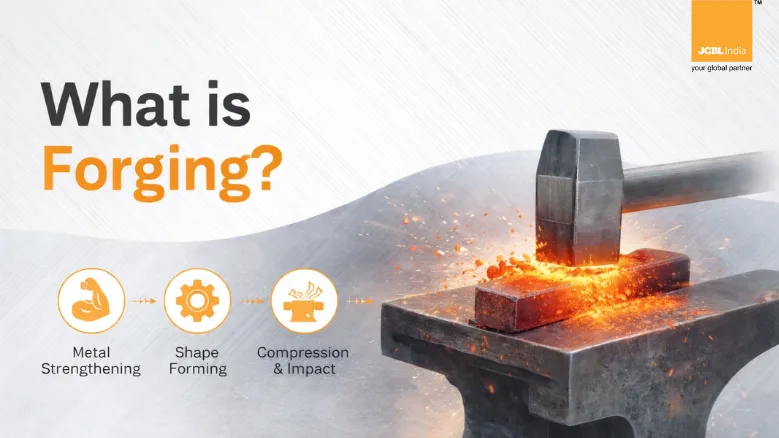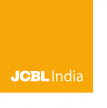Essential Beginner DIY Tools That You Need

Are you weary of waiting for a maintenance worker for simple home repairs and maintenance tasks? Become your repair person in this fast-paced world where online guides are available for DIY tasks. Working on DIY projects can make you feel excited, as it gives you a sense of achievement. From building furniture to small home repairs, you can do all by yourself with the right tools. Having the right tool can make a significant difference in smooth project completion without frustration. However, several options are available in the market, it is okay to get confused while choosing the essential beginner DIY tools for your project.
In this guide, we will explore the essential DIY tools you need as a beginner, why they are important, and how to customize your DIY toolkit to empower you to confidently tackle projects.
Why is having the right DIY tools important?
Imagine you’re trying to drive a nail into the wood without a hammer or trying to measure a piece of furniture without a measuring tape. Without the right tool, even the simple task of driving a nail or measuring an object becomes complex and frustrating. Thus, using the right tool is important to complete the job efficiently and with precision. Furthermore, using the right tool keeps you safe by minimizing the risk of mistakes and accidents. With the right tool, your project will not only be completed faster, but you’ll be able to achieve the best results and enjoy a sense of accomplishment with each task.
11 Must-Have Beginner DIY Tools
Here is a list of must-have tools that every beginner should have:
Spanner
A spanner is a must-have tool for beginners and professionals for tightening and loosening nuts and bolts. It is useful in simple home maintenance tasks such as assembling furniture, repairing appliances, etc. The spanners are measured in millimeters or inches and come in different sizes to fasten nuts and bolts of different sizes. For beginners, the spanner set with standard sizes will be sufficient for versatility in different products. You can also go for a combination spanner, which has a closed ring on one side and open ends on the other side. It offers double functionality in a single tool to help you save space in the toolkit.
Adjustable Wrench
An adjustable wrench is one of the most flexible hand tools for a beginner. Unlike fixed-size spanners, the adjustable wrench has an adjustable jaw that allows one to tighten or loosen nuts and bolts of variable sizes. It is a versatile tool that comes in handy when you don’t have a large set of spanners. The adjustable feature gives you an advantage in tackling a variety of tasks. This makes them ideal for tightening plumbing fixtures, adjusting bolts, and even simple repair tasks at home.
Plier
Pliers are important tools for gripping, twisting, bending, or cutting wires and other materials. The pliers come in various tasks, but combination or long-nose pliers are great options for beginners. You can use combination pliers to cut wires, hold objects securely, and crimp the connectors. Meanwhile, a long-nose plier can be used for more precise work in tight spaces. Having these pliers in your toolbox can make small electronic repair tasks and DIY projects simpler.
Hammer
In DIY tasks, a hammer is the key tool in your DIY kit. Out of all the hammers available in the market, the claw hammer is one of the best choices for beginners, as it can be used for two functions, including hammering nails in and pulling them out using the curved claw back. You can use it for a variety of tasks, such as hanging picture frames, assembling furniture, or fixing loose items.
Tape Measure
In project building, the tape measure is the most critical tool to take accurate measurements and build the project precisely. Whether you want to measure the length of your sofa or the length of a wall for precision, this portable tool comes in handy. You can measure the length, width, and height of an object in standard or imperial units, metric units, or both.
Chisel
A chisel is specifically used in woodworking, carving, and removing tile grout in home repairs. The wood chisel is a great choice for beginners for shaping, smoothing, or cutting into the wood surface. You should purchase a chisel that has a comfortable handle and a sharp edge to make smooth cuts. Although you need to practice this tool a bit, it is worth mastering as you can restore wooden items with it.
Utility Knife
A utility knife is a versatile tool that can be used by DIY enthusiasts for cutting through various materials such as plastic, cardboard, drywall, etc. It is commonly known as a box cutter or razor knife. This tool is easy to use and has disposable blades, which means you can easily replace the blades when they get dull.
Screwdriver set
A screwdriver is the basic hand tool used in house repairs and maintenance for inserting and removing screws. These come in multiple variations to fasten screws of different sizes. The screws have a shaped cavity on their heads that fits perfectly into the screwdriver tip. You can apply force on both sides, either clockwise or anti-clockwise, to tighten or loosen the screw. These can be used in a variety of repair tasks, including electronics, woodworking, metalworking, etc.
Safety Gloves
Safety gloves may not be a tool, but they are essential to have in your DIY tool kit. While working on projects, you can get cuts, scrapes, and burns on your hands. For safety, it is important to wear safety gloves that are made with high-grade materials and fit perfectly in your hands. If you are working on heavy-duty DIY projects, then it is better to choose leather gloves; otherwise, latex and nitrile gloves are suitable for light-duty tasks such as painting or working with chemicals.
Adjustable Hacksaw
An adjustable hacksaw is a good tool for DIY beginners for cutting a variety of materials in projects such as plastic, steel, and other metals. It offers versatility to the users by allowing them to switch out blades of different thicknesses and lengths based on the project requirements. For beginners, the hacksaws are useful for home repairs, gardening, and plumbing work. They are easy to use and require a little practice to master.
Pruning Secateur
Pruning secateurs is an essential tool for those who love gardening. It is a small scissor-like tool specifically used for trimming and shaping bushes, plants, and small branches. They can be used to maintain the health of plants and create clean cuts on the plants without damaging them. If you are a beginner, then the bypass pruner is a suitable tool, as it allows one to make smoother cuts on the greenwood.
DIY Tools Maintenance Tips for Beginners
Regular maintenance and care of your tools is essential to ensuring they last for a long time. Here are some of the basic maintenance tips for beginners:
Clean Regularly
One of the key maintenance tips for hand tools is regularly cleaning. If you don’t clean your tool properly, dirt and debris might accumulate in the tool, further affecting its performance.
Store properly
It is important to store your tool in a clean, dry, and safe place, like a protective storage case. Proper storage reduces the wear and tear of tools done through bumping into each other, as well as protecting them from rust and dust.
Lubrication
If your tool contains moving parts, then don’t forget to lubricate them from time to time. Moving parts of tools often get jammed, leading to reduced friction. Through lubrication, you can improve friction between moving parts and increase their lifespan.
Sharpen cutting tools
Hand tools like cutters and pruners require sharpening over time as the blades get dull after frequent use. It is important to check them from time to time to find out if they need sharpening.
Conclusion: Get Started with Your DIY Toolbox
Equipping yourself with the right tools will make DIY projects easier, faster, and more enjoyable. Start with the essentials, and you’ll soon find yourself tackling home repairs and projects with newfound confidence. Remember, as you grow in your DIY journey, you can add more specialized tools that fit your needs and interests.
Now’s the perfect time to start building your toolkit and dive into the rewarding world of DIY. You’ll find that even small projects can bring a big sense of accomplishment—and save you money in the process.
If you’re looking for premium-quality DIY tools? You don’t have to search further. At JCBL Hand Tools, we manufacture and supply a wide range of hand tools made with high-grade materials for performance, durability, and longevity. To check out our complete product range, visit our website.
FAQs
Should I buy or rent DIY tools?
For tools you’ll use frequently, buying is the better investment. For occasional or specialized tools, renting may be more cost-effective.
What’s the best place to buy beginner DIY tools?
Hardware stores, online retailers, and even some secondhand shops are great places to find quality, affordable tools.
How do I decide which tools are essential?
Think about the kinds of projects you’re most likely to start with. Start with basic hand tools and add more as your project needs to grow.




